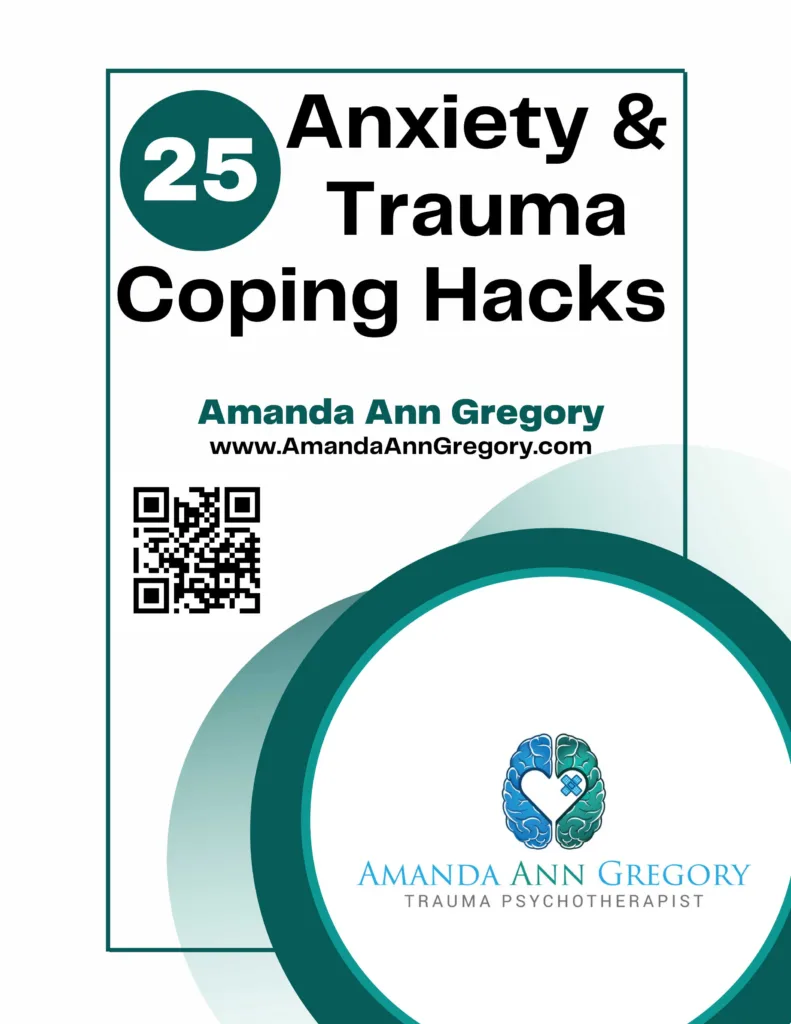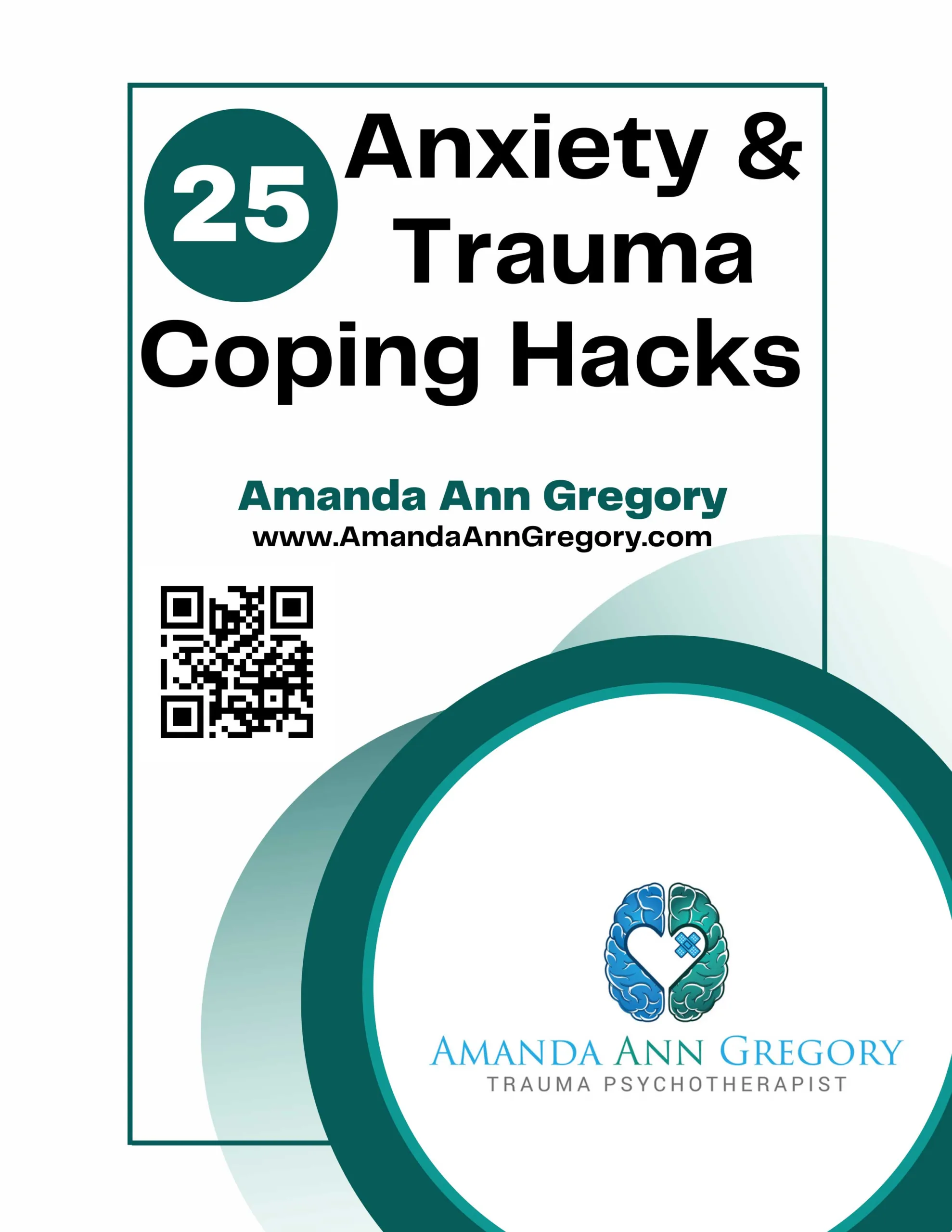How can gratitude – a widely embraced wellness practice – negatively impact your mental health?
Practicing gratitude can be beneficial in many ways. In fact, studies indicate that gratitude improves your psychological functioning, physical health, relationships, and career development (Gregory, 2022). Yet, gratitude is not always beneficial. Gratitude (like most psychological practices) can have either a positive or negative impact upon your wellbeing. In certain circumstances, gratitude can be harmful.
Gratitude can minimize and invalidate your emotional experiences
“You shouldn’t feel this way. Remember, many people have it worse than you.”
Does this sound familiar? If you’ve had this thought, heard it, or said it yourself, you may have experienced a negative impact of gratitude. When you compare yourself to the circumstances of others, you risk minimizing and/or invalidating your emotional experiences.
Connie L. Habash, LMFT, states that “gratitude shouldn’t be practiced in a way that compares ourselves to others. It’s not about who has it worse or better. It’s about finding what is available to us, here and now, that we can appreciate.” (Bence, 2020). Dr. Nekeshia Hammond goes further by stating, “It’s important when practicing gratitude not to invalidate your feelings of stress. You can have both: a strong sense of gratitude along with feelings of sadness, confusion, or anxiety.” (Bence, 2020).
Gratitude becomes unhealthy when it is weaponized in order to diminish or dismiss your own lived experiences of various stressors and harms; in some cases, it may even be a tool for gaslighting you about the very reality of such stressors and harms.
In order to avoid minimizing and invalidating your emotional experiences, try these methods when you practice gratitude:
- Experience and validate your emotions before you focus on practices of gratitude. If you focus on your emotional processing first, you may be less tempted to use gratitude to minimize or invalidate your emotional experiences. Remember that all of your emotions are vital, including negative ones, such as anger, grief, and even hopelessness.
- Don’t compare your feelings, thoughts, or situation with others. Instead, focus on your personal experiences when practicing gratitude. For example, instead of saying, “I should be grateful because many people have it worse than I do,” simply say, “I’m truly grateful for ___.”
Gratitude can hinder your emotional processing
“Don’t sit in sadness or anger, instead focus on the positive.”
There are times when you need to sit in anger, sadness, or any combination of emotions – negative as well as positive. When you experience your emotions, you allow these emotions to change and become a part of your identity and journey. For example, if you experience a loss, it’s important that you grieve it in your own way as opposed to avoiding the grieving process, as this could negatively impact your mental health. Unprocessed or delayed emotional processing can cause trauma, complicated grief, and various mental health disorders.
In short, you need to process your emotions instead of avoiding them by means of gratitude or practices of positive mindfulness. Gratitude or positive mindfulness becomes toxic when it pressures us to repress or to deny the importance of “negative” affects and experiences.
In order to avoid hindering your emotional processing, try these methods when you practice gratitude:
- Allow yourself to feel all of your emotions (including negative or painful ones) in addition to experiencing gratitude. For example, you can actively grieve a loss and also feel grateful for the people and things that you have not lost or for the time you got to spend with what has been lost.
- Do not force gratitude when you’re feeling upset as a way to manage your emotions. Instead, allow yourself to experience your emotions while acknowledging that gratitude won’t stop or fix them.
- If you struggle to access your emotions, try focusing on your physical sensations. Notice how your body responds when you think or feel a certain way and allow your body to experience these sensations. If this feels too overwhelming, try body-calming methods, which will help you process intense emotions.
Gratitude can maintain harmful systemic issues
“Be gratitude for what you have instead of focusing on what you lack.”
There is multiple, overlapping systemic issues that negatively impact your mental health, such as systemic racism, economic inequality, ableism, and cisheterosexism . Woods, A. et al. (2016) discuss the “slave-foreman problem,” which is the problem of a slave feeling “gratitude” towards their foreman, or their master, who treats them kindly and with good intent. What’s wrong with a slave feeling gratitude toward a “kind” master? The master, no matter how kind or generous they may be, represents a member of an oppressive regime, and any relationship between a slave and a master is inherently unjust.
Woods, A. et al. describe “a concern would be that gratitude expressed to these people would make them less likely to stop supporting the system, which if done in sufficient numbers, would cause system change.” We need systemic change, and feelings of gratitude for the status quo make it more difficult for you to initiate and promote the very systemic changes that would positively impact your wellbeing and the wellbeing of others. Indeed, such gratitude – or an ideology of “toxic positivity” – serves to sustain and reinforce injustice, exploitation, and the kinds of oppressive power relations that are at the basis of so many mental health problems.
In order to integrate an awareness of systemic issues into your gratitude practices, try these methods:
- Acknowledge the systemic issues that negatively impact you and how these issues co-exist with your feelings of gratitude. For example, a woman who earns more money than her male colleagues can feel grateful for her career success and opportunities and also acknowledge that there are many other women who are denied these opportunities.
- Use your gratitude as a way to be a part of systemic change. For example, a woman might volunteer as a career mentor for other woman and work to advocate for equal pay in her company.
Gratitude, like every psychological intervention, can positively or negatively impact your mental health. Be aware of how you practice gratitude in order to avoid its pitfalls.
Purchase my book, You Don’t Need to Forgive

Sign up to get your Free eBook: 25 Anxiety & Trauma Coping Hacks

Hire me to speak at your event! Contact Me






